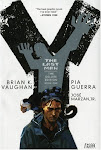
A federal judge this week ruled the heirs of Jerry Siegel own part of the copyright to Superman, co-created by Siegel and Joe Shuster.
Now, this case mainly involves the first Superman story in Action Comics #1, which Siegel and Shuster sold to DC (for $130!), and the character points and story elements therein. But how much of what DC did with the character since was based out of that story? It could also only pertain to money being owed the Siegels for product only after 1999, when DC's copyright protection would have terminated. But that's a ton of product and money at stake, and product decisions could conceivably have to be OK'd by the Siegels and Shuster estate holders (after 2013).
Comic book writer Warren Ellis is not one for hyperbole, but called the ruling "fucking immense."
There's been numerous cases of comic book creators, or their heirs, challenging publishers over the rights to characters, especially with the boom of comic book-based films. Although the specific cases differ, and most may not be able to overcome the work-for-hire hurdle as was done in the Siegel case, most of these people were royally screwed. Hopefully this will lead to more getting their due.
It is amazing to think about Superman product possibly having to be run through the Siegel and Shuster estates — not unlike Star Wars comics, games, etc. running through Lucas — and further down the road, the Superman copyright being in the public domain. Assuming copyrights aren't extended by then. It's no accident Mickey Mouse isn't already public domain.
I'm no lawyer, but the detailing of the ruling and possible ramifications make for interesting reading. The article at the top breaks it down in non-legalese. More here, with some interesting comments in the forum. Yet more here.
Note: The image at the top is from All Star Superman #8, which came out Wednesday, the same day the ruling was announced. All Star Supes is written by Grant Morrison. Is this more Morrison magic via comics at work?





